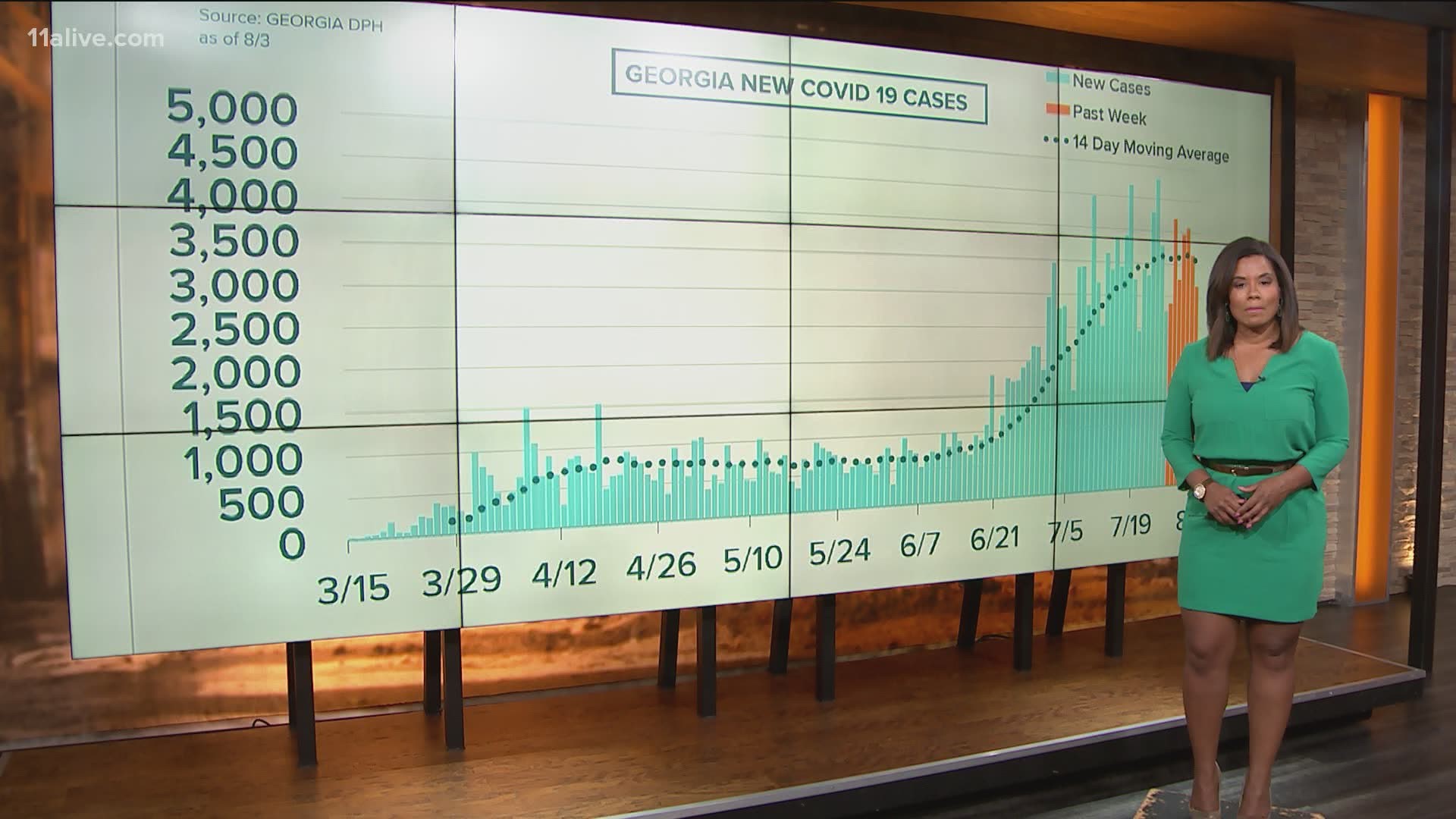ATLANTA — A new NBC News/Survey Monkey poll indicates that less than one-third of Americans say they trust what President Donald Trump has to say about the coronavirus pandemic, while a majority of Americans trust messages coming from the nation's leading health experts.
The new poll indicates that 58 percent of Americans say they do not trust what Trump has said about the pandemic, while only 31 percent say they trust the president's comments.
Conversely, a majority of Americans say they trust statements on the coronavirus coming from Dr. Anthony Fauci and the Centers for Disease Control and Prevention.
According to the survey, 51 percent of American adults say they trust Fauci's comments, while 55 percent say they trust the Atlanta-based CDC. Twenty-nine percent say they do not trust Dr. Fauci and 32 percent say they do not trust the CDC.
Nearly half -- or 49 percent -- say they trust what their state's governors have to say about the pandemic, while 37 percent say they do not.
The new poll shows a serious divide in public opinion.
Majorities of Republican voters say they trust what the president has said, but do not trust what Fauci has said or what has come from the CDC.
Just 32 percent of those who identify as Republicans or lean Republican say they trust what Dr. Fauci has said about the coronavirus. Thirty-eight percent say they trust the statements coming from the CDC.
Majorities of Republicans or those who lean Republican say they do not trust Fauci (53 percent) or the CDC (52 percent).
Sixty-nine percent of Republicans and Republican-leaners say they trust the president's comments on the coronavirus, while 29 percent say they don't. Forty-nine percent of Republicans and Republican-leaners say they do not trust their governors while 41 percent say they do.
On the other hand, Democrats overwhelmingly trust the CDC's comments (76 percent) and Dr. Fauci's comments (78 percent). Conversely, only 9 percent of Democrats and Democratic-leaning voters say they do not trust Dr. Fauci's comments and 16 percent say they don't trust the CDC.
Sixty-three percent of Democrats and Democratic-leaning voters say they trust their governor's message. Twenty-eight percent say they do not trust the message of their state's chief executive.
The partisan divide continues when it comes to the question of whether or not wearing a protective mask in public is something they do.
Sixty-eight percent of adults say they wear a protective covering over their face "every time" they leave their home and may come into contact with other people. When broken down by party, just 48 percent of Republicans and those who lean Republican say they wear one "every time" they leave the house and may come into contact with others.
Democrats and Democratic-leaners are significantly more likely to wear a mask in public -- 85 percent of them say they always wear a mask when leaving home.
With schools opening in Georgia and some other states, schools across the nation are beginning to decide what form fall instruction will take -- whether in-person, remotely or with a form of hybrid instruction.
According to the survey, 38 percent of adults report that their children's fall instruction would be entirely online, 25 percent say their children's schools would be using a hybrid format. Only 18 percent said their children would be going back to school in a fully "in-person" format for the fall.
11Alive is focusing our news coverage on the facts and not the fear around the virus. We want to keep you informed about the latest developments while ensuring that we deliver confirmed, factual information.
We will track the most important coronavirus elements relating to Georgia on this page. Refresh often for new information.
MORE HEADLINES |

